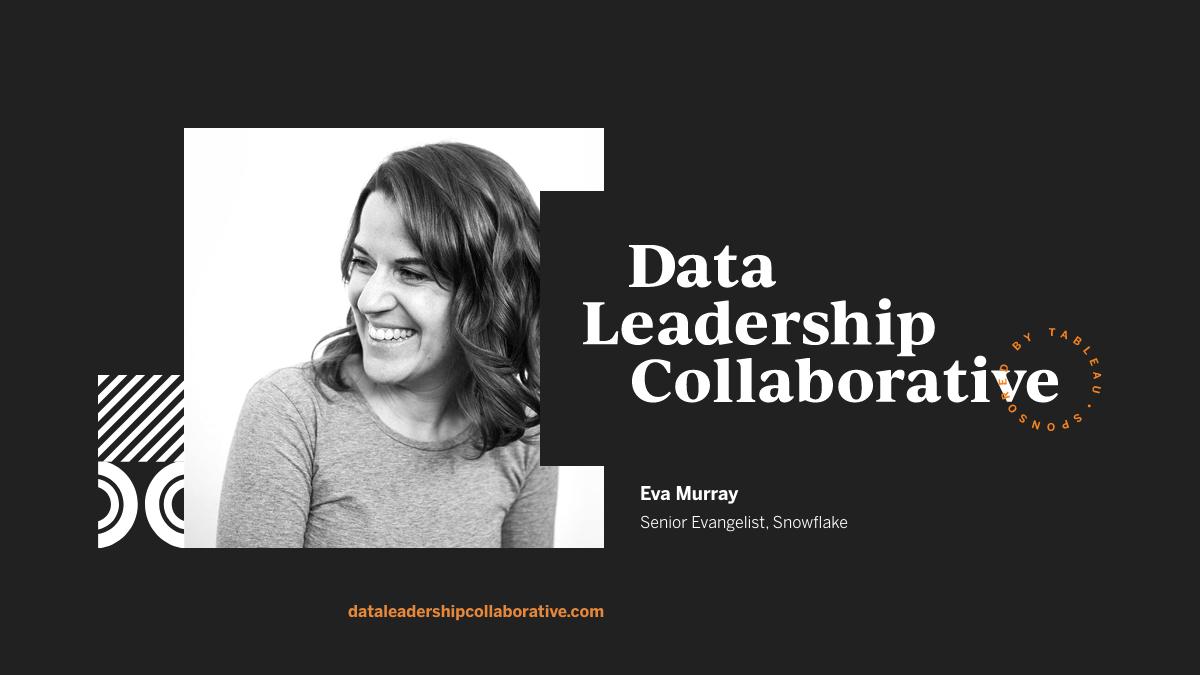
The Evolution of the Data Evangelist, and 5 Ways to Become a Better One


My current role as a data evangelist marks the second time I’ve held this role in the past five years. Like everything else in data science, the scope and focus of data evangelism are evolving quickly. That’s a good thing, because data evangelism is a compelling way to empower people with data and drive greater data literacy.
My first evangelism role was vaguely defined and it was difficult to really pinpoint what it would look like because it was up to me to shape it. Today there are other examples of what people do in this role (including what I did previously), so I have a much clearer idea about technology evangelism. In addition, people are less surprised by the title now.
Here’s how I describe my job role today:
I focus on building awareness through specific industry and technology campaigns, which involve content creation, events (virtual) and enablement sessions for partners and customers. I use a variety of formats, including videos, blogs, podcasts, press and analyst interviews, webinars and workshops. Building on my expertise in data visualization and specifically Tableau for businesses of all sizes, I work with prospects and customers to ensure they can maximize the value they get from their investment in analytics.
Five ways to become a better data evangelizer
Whether you are taking on a technology evangelism role or just need to better rally your troops around data culture, here are five steps you can take to create greater impact:
- Create content and build relationships. The best way to get the message across about data culture is to make the best case for its benefits. Content you create can be fact sheets, videos, videoconferences or face-to-face conversations. Repeated conversations lead to relationships and get at the (Greek) root of evangelizing, which literally means ‘to announce well’ or ‘to bring good news.’
- Be known for something. Spreading yourself too thinly across too many subject areas in data science means your audience will be unsure where your expertise lies. As a data evangelist you need to build a brand around your area of expertise. That doesn't mean you can't be involved in other topics, but you always need to come back to the place where you can say, “This is my thing. This is what I stand for. This is what I speak about.” That means you're authentic and genuine, and you also speak with conviction so you create more impact.
- Aim for quality over quantity. I think silence is very powerful when it comes to content cadence. I don't claim to have mastered it by any stretch of imagination, but when I write a blog post, I'd rather have it appear once a month and provide enough content for people to get a lot of value from it versus writing something every week that doesn’t really go anywhere. The best feedback for me isn’t number of likes but comments such as, "Oh, these tips are so helpful. I've created new habits," or whatever they might get out of it.
- Become a better listener. Because a data evangelist is very much an advisory role, it’s crucial to listen to my colleagues. After all, I can’t advise people if I'm the only one talking. I need to listen to what their problems are, their questions and their challenges, so I can look into my own brain and experience and say, “Oh yes, I've heard that one before and this is how we solved it.”
- Be patient. Patience is a very important part of evangelism because you’re often at the very beginning of someone’s journey towards something new. You're not going to convert people overnight. It might take two years, in fact. In the past, I’ve had many situations where it took 18 to 24 months before an initial conversation actually led to a tangible outcome. When you are patient and persistent, things start trickling down much more quickly because all the seeds you’ve planted are now bearing fruit.
The evangelist within every leader
Of course, not everyone needs to call themselves an evangelist. Some people are uncomfortable with the term’s religious connotations. The basic idea is true for any data leader: you win people over based on recommendations and things you truly believe in. To me, it's like being an influencer — not the kind you see on Instagram hawking products, but someone with a message you can align with.
When I look at my own interactions online and social media, the people that influenced me, my buying decisions and my behaviors, the evangelizers I admire, are the ones that stand for something bigger than the product. It can involve the product but it’s more about how they live by my values, so I'll listen to them. It's about how they carry themselves and how they do what they do. Any good data evangelist should reflect all these qualities to create success.
Remember, at the end of the day we’re talking to people regardless of the products they use. We have concepts and methodologies around empowering people with data, sharing data, and data literacy. That's what I want to stand for.







